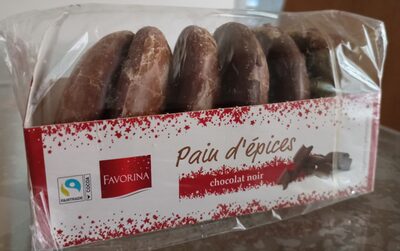
Barcode: 20036188
Pains d’épices
HALAL
📝 Reason: All ingredients have been checked against the provided lists of Haram and Doubtful ECodes. Ingredients not listed are considered Halal as they do not contain any Haram substances or are not derived from Haram sources. The presence of a Doubtful ECode (E951) does not automatically render the product Haram, but it is marked as Doubtful for further verification.
📄 Certificates: None
Ingredients:
Details
Understanding the Halal Status of Pains d’épices
Pains d’épices is a delightful treat that many enjoy, but for Muslims, understanding its Halal status is essential. This article delves into the ingredients of Pains d’épices and explains why it is classified as Halal. Let’s take a closer look!
Halal Certification and Its Importance
Halal, which means ‘permissible’ in Arabic, defines what is allowed in Islamic law. It extends to food and drink, where stringent regulations ensure that no Haram (forbidden) substances are present. Pains d’épices has been evaluated, and findings confirm its Halal status, which is crucial for Muslim consumers seeking to comply with their dietary laws.
Ingredient Breakdown
The primary ingredients in Pains d’épices include:
- Sucre caramélisé (E150a)
- Acide citrique (E330)
- Pectines (E440a)
- Carbonates de sodium (E450a and E500)
- Aspartame (E951)
Evaluating Each Ingredient
Let’s break down each ingredient and its Halal status:
Sucre caramélisé (E150a)
This caramelized sugar is commonly used in various food products for flavoring and color. It does not involve any pork, chicken, lamb, mutton, meat, or alcohol in its manufacturing process. Thus, it is considered Halal.
Acide citrique (E330)
Citric acid is a natural preservative and is typically derived from citrus fruits. Its production process follows Halal guidelines as it contains no Haram components or derivations. It’s Halal-friendly!
Pectines (E440a)
Pectins are used as gelling agents and are derived from fruits. This ingredient is processed without any animal by-products, ensuring that it remains within the Halal framework.
Carbonates de sodium (E450a & E500)
Sodium carbonates are often utilized as a leavening agent. The sources of these compounds do not contravene Halal principles since they do not originate from forbidden animals or substances. Therefore, both types of sodium carbonates are Halal.
Aspartame (E951)
Aspartame is an artificial sweetener classified with a ‘Doubtful’ E-code. While it is synthetically produced without any direct contact with Haram ingredients, its classification as ‘Doubtful’ indicates that further verification is advisable. However, it does not inherently render the product Haram.
Conclusion: Embracing Halal Choices
After examining Pains d’épices and its ingredients, it’s clear that, apart from a doubtful E-code, the product stands as Halal. This means consumers can indulge without worry, knowing they are observing their dietary laws. For manufacturers and brands, obtaining certification aids in confirming and promoting their commitment to Halal standards.
Remember, when in doubt about any product, reach out to the manufacturer for clarity on sourcing and processing practices. Pains d’épices embodies a delicious treat that aligns well with Halal dietary requirements. Indulge with confidence!
